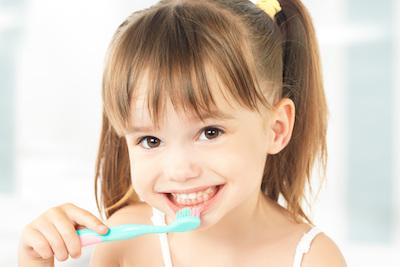
The moment your little one grows their first tooth, one of the things you should think about is dental care. We at Bayside Smiles – a family dentistry team in Melbourne – suggest you start planning for your child's dental visit by age four.
This may seem too early, but taking your child to their first dental visit at this time can make a big difference in lifelong dental health. Proper education on how to care for teeth should always start early. This can prevent oral health issues that typically leave long-lasting effects.
At the same time, an early dental visit provides the opportunity to address potential dental problems that have a genetic basis. Unknown to many, a person's genes can increase their risk for specific oral health issues.
This means specialised oral care needs to be determined immediately to outwork these problems. Timely determination of appropriate oral care can outwork teeth and gum issues due to genes, and it is helpful to establish a specialised oral care routine early on so it becomes a lifelong habit.
Getting Your Child Ready for The First Dental Visit
A child's first visit to the dentist can be quite an adventure.
The age of your child is a huge factor in the experience. And your child's unfamiliarity with the setting and the people getting close can trigger agitated or fussy behaviour.
However, with proper preparation, your child's first official dental visit does not have to be a negative experience. All the problematic possibilities can be addressed with the right approach.
Your attitude and manner of educating and preparing your child can put your little one at ease so they can emerge from the event having enjoyed meeting the dental team and being examined.
What to expect:
1. A Detailed Interview with Our Children's Dentist in Melbourne
Much of the visit will be focused on getting all the information about how your child cut their first tooth. You will need to share how the whole experience went down, such as the discomfort your child suffered, any changes in behaviour, and other personal observations you may have.
2. A Question and Answer Session
You can ask the dentist or the entire dental team about your concerns regarding your little one's oral health. At the same time, you will need to answer queries about your dental health.
As mentioned earlier, there are oral issues that have a genetic basis. Therefore, expect a probe into the condition of your teeth and gums.
3. A Presentation of Oral Health Concerns
The oral concerns your dentist will discuss include the following:
- How your child's teeth will develop and come together to form their bite
- The teething experience (it is not the same for every tooth)
- The condition of the soft tissues in your child's mouth.
- Your child's oral activities, such as being breastfed, thumbsucking, and using a pacifier or binky.
- The risk of cavities.
4. Oral Examination with a Family Dentist
An oral examination will establish the condition of your child's mouth and oral health. This is a big part of the dental visit that can get a little out of control if your young one is unprepared.
5. Dental Treatment or Treatment Planning
A cleaning treatment may be necessary if your little one already has tooth stains. A fluoride treatment may follow to prevent future damage.
6. Oral Care Education
Your chosen dental professional will discuss how you, the parent, can best care for your child's teeth.
Not only that, we discuss diet and nutrition because caring for the teeth does not just involve hygiene; it also includes overall health.
Some Pointers Before the Visit
Now that you have a clear idea of what to expect, we have below the tips on how you can help ensure a positive first dental visit for your little one:
1. Practice
Try a "little" oral examination for your child — practice opening their mouth wide.
This will familiarise them with the dentist's instructions and movement. When you do this exercise, follow up with praise or an affectionate gesture your child enjoys.
Rewarding them this way will reinforce compliance and help your child feel more at ease.
2. Play Dentist with Your Little One
Pretend play always helps introduce going to the dentist.
Take turns acting as the dentist or patient with your child. Injecting a fun element to an upcoming experience can make your child excited about it instead of dreading it.
 3. Bring a Favourite Item or Toy to the Dental Clinic
3. Bring a Favourite Item or Toy to the Dental Clinic
Ensuring comfort is one of the keys to an excellent first-time visit to the dentist.
One of the best things you can do to put your little patient at ease is to let them bring an item or toy. This can be a security blanket or a plush toy.
It may help to conclude the day with a fun activity for your child. Say, after a successful visit to the dental clinic, visit the playground or pick out a reward at a favourite store or shop for good behaviour.
Indeed, your child's first trip to the dentist requires adequate preparation.
For more information on children's oral health, check back here with us.
Our children's dentistry team and the whole Bayside Smiles family regularly post content to answer questions and address all kinds of dental health concerns of individuals and families.
